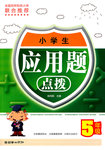题目内容
11.The practice of exchanging foreign currency can vary by country.In one country,you may have to change your money at the airport,and in other countries you may need to buy your foreign currency in advance.Here are some places you can exchange foreign currency for U.S.currency.Your Bank
In many cases you can purchase U.S.currency for your trip from a bank.Banks tend to have higher exchange rates than some currency exchange businesses.Before you purchase currency from a bank,check the currency change rates for that day so you can compare the rate the bank is giving and determine if it's a good offer.There is a fee involved in withdrawing foreign currency from your bank.
The Airport
Currency exchange businesses can be found at most international airports,so you can purchase U.S.currency either before you board your flight or at the U.S.airport on arrival.Note that U.S.airports typically have fewer currency exchange counters than travelers are accustomed to seeing in other parts of the world.If the airport you are flying into is not in a major U.S.city,consider using the exchange service in your departure airport to be on the safe side.If you are in an airport where several exchange companies operate,be sure to shop around for the best rate and lowest exchange fee.
56.The practice of exchanging foreign currencyC.
A.changes with time of the year
B.depends on exchange rates of the day
C.is likely to differ from country to country
D.is exactly the same all over the world
57.Before purchasing foreign currency from a bank,you are advised toD.
A.deposit some money with the bank
B.examine the services of the bank
C.pay the exchange fee in advance
D.compare the exchange rates
58.In which case are you advised to consider using the exchange service in your departure airport?D
A.If you are flying with a foreign airline.
B.If the airport is far from the city center.
C.If the airport you are flying into is not safe.
D.If you are not flying into a major US city.
59.The passage is mainly aboutA.
A.currency exchange
B.exchange fees
C.American airports
D.U.S.currency.
分析 本文是一篇科教类阅读,本文主要讲的是一些关于在哪交换美国货币及该注意些什么.
解答 56~59 CDDA
56题答案:C考查细节推理,根据第一段的The practice of exchanging foreign currency can vary by country.(交换外国货币的做法在每个国家可能不一样)可知本题答案为C选项.
57题答案:D考查细节推理,根据文章第二段的Before you purchase currency from a bank,check the currency change rates for that day…(在你从银行购买货比之前,看一下当天的汇率…)可知本题答案为D选项.
58题答案:D考查细节推理,根据文章最后一段的If the airport you are flying into is not in a major U.S.city,consider using the exchange service in your departure airport…(如果你要降落的机场不是在美国的主要城市,那你要考虑在你离开的机场使用交换服务…)可知本题答案为D选项.
59题答案:A考查主旨大意,本文主要讲的是一些关于在哪交换美国货币及该注意些什么,故本题答案为A选项.
点评 本文是一篇科教类阅读,题目涉及多道细节理解题,做题时结合原文和题目有针对 性找出相关语句进行仔细分析,结合选项选出正确答案.推理判断也是要在抓住关键句子的基础上合理的分析才能得出正确的答案.

练习册系列答案
 精英口算卡系列答案
精英口算卡系列答案 应用题点拨系列答案
应用题点拨系列答案
相关题目
19.Many people complain that their memory is bad,particularly as they get older.Life would be so much easier if we could remember things (51)A.So how can we improve our memory?
Many people think that repeating things is the best way to remember.While this undoubtedly helps short-term memory (remembering a telephone number for a few seconds,(52)D,psychologists doubt whether it can help you to remember things for long.The British psychologist E.C.Stanford seemed to (53)Bthis point when he tested himself on five prayers that he had read aloud every morning for over 25 years.He found that he could remember no more than three words of them!(54)A,especially for remembering numbers,is‘chunking'(分块),or grouping the information.The following numbers would be (55)Bfor most of us to remember.1492178919931848.But look at them in‘chunks',and it becomes much easier.1492 1789 1993 1848.
So what about‘memory training'?We've all (56)Cpeople who can memorise packs of card by heart---how is this done and can anyone learn how to do it?(57)Cexperts,there are various ways of training your memory.Many of them (58)Dforming a mental picture of the items to be memorised.One method,which may be useful in learning foreign languages,is to create a picture in your mind (59)Da word you want to remember.Another method is to invent a story that includes all the things you want to remember.People were asked to remember up to 120 words using this technique; when tested afterwards,on average,they were able to (60)A90 per cent of them!Surprisingly,however,there is nothing (61)Dabout these methods---they were around even in ancient times.Apparently the Roman general Publius Scipio could (62)Bhis entire army---35,000 men in total!
(63)B,not all of us are interested in learning long lists of names and numbers just for fun.For those studying large quantities of information,psychologists suggest that the best way to‘form (64)Cconnections'is to ask yourself lots of questions as you go along.So,for example,if you were reading about a particular disease,you would ask yourself questions like:‘Do people get it from water?',‘What parts of the body does it affect?'and so on.This is said to be far more effective than time spent‘(65)A'reading and re-reading notes.
Many people think that repeating things is the best way to remember.While this undoubtedly helps short-term memory (remembering a telephone number for a few seconds,(52)D,psychologists doubt whether it can help you to remember things for long.The British psychologist E.C.Stanford seemed to (53)Bthis point when he tested himself on five prayers that he had read aloud every morning for over 25 years.He found that he could remember no more than three words of them!(54)A,especially for remembering numbers,is‘chunking'(分块),or grouping the information.The following numbers would be (55)Bfor most of us to remember.1492178919931848.But look at them in‘chunks',and it becomes much easier.1492 1789 1993 1848.
So what about‘memory training'?We've all (56)Cpeople who can memorise packs of card by heart---how is this done and can anyone learn how to do it?(57)Cexperts,there are various ways of training your memory.Many of them (58)Dforming a mental picture of the items to be memorised.One method,which may be useful in learning foreign languages,is to create a picture in your mind (59)Da word you want to remember.Another method is to invent a story that includes all the things you want to remember.People were asked to remember up to 120 words using this technique; when tested afterwards,on average,they were able to (60)A90 per cent of them!Surprisingly,however,there is nothing (61)Dabout these methods---they were around even in ancient times.Apparently the Roman general Publius Scipio could (62)Bhis entire army---35,000 men in total!
(63)B,not all of us are interested in learning long lists of names and numbers just for fun.For those studying large quantities of information,psychologists suggest that the best way to‘form (64)Cconnections'is to ask yourself lots of questions as you go along.So,for example,if you were reading about a particular disease,you would ask yourself questions like:‘Do people get it from water?',‘What parts of the body does it affect?'and so on.This is said to be far more effective than time spent‘(65)A'reading and re-reading notes.
| 51.A.effortlessly | B.purposefully | C.exactly | D.carelessly |
| 52.A.by contrast | B.in that case | C.in no way | D.for example |
| 53.A.raise | B.prove | C.discuss | D.stress |
| 54.A.More helpful | B.Much worse | C.More difficult | D.Much shorter |
| 55.A.convenient | B.impossible | C.meaningful | D.technical |
| 56.A.agreed with | B.learned from | C.heard about | D.apologized for |
| 57.A.Due to | B.In case of | C.According to | D.In spite of |
| 58.A.exclude | B.mean | C.suggest | D.involve |
| 59.A.isolated from | B.sensitive to | C.responsible for | D.associated with |
| 60.A.recall | B.recite | C.revise | D.restore |
| 61.A.effective | B.awful | C.valuable | D.new |
| 62.A.train | B.recognize | C.lead | D.command |
| 63.A.Furthermore | B.However | C.Summarily | D.Therefore |
| 64.A.unknown | B.loose | C.meaningful | D.personal |
| 65.A.passively | B.silently | C.amusingly | D.extensively. |